Polyglot, teacher, and ICU nurse- new nurse Shannon Duncan shares her path before CVHS
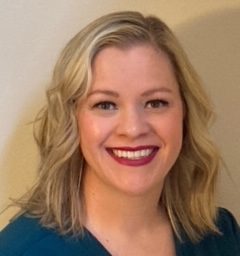
Photo courtesy of Shannon Duncan
Shannon Duncan has had an adventurous journey before coming to CVHS as the campus’ new nurse.
On school mornings, CVHS students, barely awake and trudging through the doors will find an upbeat and smiling Shannon Duncan greeting them to take their temperature at the door.
Duncan, the campus’ new nurse, used to be a teacher for 10 year, before going back to college to become a nurse. She then worked as a nurse on the ICU, intensive care, and the stroke team at Methodist Hospital for 12-hour shifts for 3 days a week.
Duncan was a military child and had three other siblings. She was raised in Nuremberg, Germany, before moving to Kaiserslautern, Germany, when she was a teenager. Duncan’s childhood was spent with her family doing outdoor activities and visiting historical sites.
“So I grew up in a big family. I have three siblings. So, I would describe our childhood as just, just a lot of people, a lot of heavy noise. We went camping and we were on bikes. My parents tried to take us to a lot of historical sites, since we were living overseas and very close to a lot of those things. So I would say just happy, a lot of time to play a lot of time with friends and do a lot of learning,” said Duncan.
Duncan attended Ramstein American High School, which is a Department of Defense High School in Germany. Department of Defense High Schools are schools that were founded shortly after World War 2 for military members’ children. During high school, she was involved in language courses and ran track. She also took AP US History, AP Calculus, AP Language, and AP Literature during her junior and senior years.
“So languages were a big focus in my high school and had a lot of options and a lot of opportunities. So, I took German and French throughout high school, and I continued that actually when I was in college. I took AP US History, I took AP Calculus, AP Language, AP Literature [during junior and senior year]. I ran track I hurtled in high school, I think those are the big things I think of when I think about high school,” Duncan said.
Duncan taking languages’ German and French opened a door of possibilities for her. She attended Auburn University and got her first bachelor’s degree in French.
“My first bachelor’s degree is actually in French. So, that had a huge influence on my life because it just kind of opened the door to something that is just very interesting and a skill that I have that I wouldn’t realize I had a natural affinity for that if I hadn’t been pushed to take both languages. It also opened sort of that idea of traveling and living in other cultures. When I was in college I lived in Paris. As an intern for nonprofit for a few months,” said Duncan.
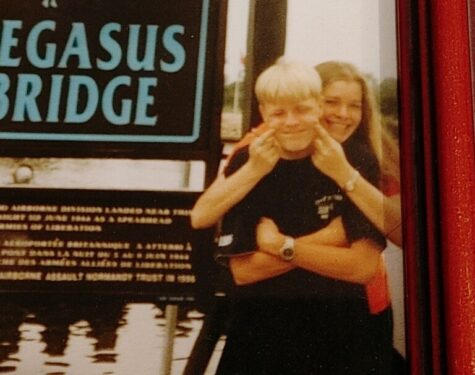
Duncan’s young self-used to be a perfectionist but as she got older she realized that things don’t need to be perfect. The pandemic has made her realize how important it is to pause and live in the moment because people take for granted the time we have left.
“My young self was much more of a perfectionist, and I don’t think I probably cut myself as much slack as I could have. I think as I’ve gotten older I’ve realized that most things in life don’t have to be perfect to still be good and valuable and helpful. Unfortunately, I think that was a lesson I had to learn the hard way. I think just the last year of Covid has really made me realize how valuable time is with people that we don’t always get to have as much time as we assume we will or as much time as we want, or time in the way that we want if we’re having to quarantine and do these types of things. So I think it’s put kind of give it a pause on some of the things in life that keep us so busy, but that maybe aren’t as important in the long run of our life,” said Duncan.
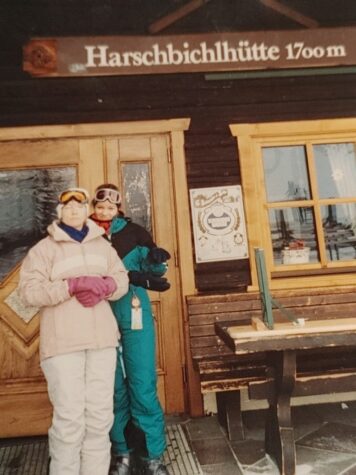
In her life outside school, Duncan has six year old and a husband. As a family, they are always doing outdoor activities. Even with the pandemic restrains, they try to make the most out of life as a family.
“So outside of school, I have a six-year-old and we spend a lot of time just doing family things. My husband and I take him to just really right now, anywhere we can be outdoors, so that it’s easy to social distance but he can still run around and have fun. Started taking swimming lessons during quarantine because that was an exercise I could do that was easy for social distance as well. And something I told myself I would always learn how to do. And so now I have, but those are really the big things just getting in some regular exercise and spending a lot of time with my family,” said Duncan
Before coming to Carnegie, Duncan was a teacher for 10 years then a nurse for four years in the ICU and stroke team.
“I have worked almost four years as a nurse, so my previous nursing experience was in neuro areas. So, a neuro ICU, and then on a stroke team. I was actually a teacher for about 10 years before I went back to school to become a nurse,” said Duncan.
When Duncan used to work in Methodist Hospital, a regular day in her life would consist of her taking care of 2 patients.
Duncan’s favorite part about being a nurse was helping the families of the patients in the ICU by explaining what the patient is suffering from and trying to make the families less worried.
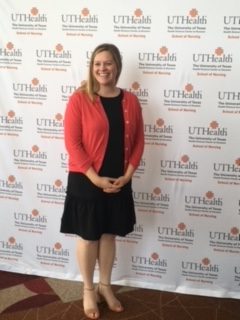
“I wouldn’t say, even just one incident, I think, when you take care of people when they’re having a stroke, you’re also taking care of their family in the ICU for weeks at a time, and you realize how important it is to help them understand what’s happening to understand what the plan is because as a nurse, you’re giving information and you’re teaching quite a lot. And that goes a long way towards alleviating people’s anxiety and stress, because in that situation, of course, there’s a tremendous amount of fear and sadness. And just by relaying information in a helpful way. You’re really making that more manageable for people,” said Duncan.
One of Duncan’s favorite parts of being a nurse is when a family member thanks you for helping them through one of the scariest moments in their life.
“Just kind of that daily experience of a family member will hug you or tell you to thank you or just that you know you’re there with someone is probably one of the worst or scariest moments of their life, and knowing that you’ve made it a little lighter for them, or a little easier to bear for them is just tremendously fulfilling sense of purpose,” said Duncan.
Duncan decided to work at Carnegie because she enjoyed working in a school environment.
“I was actually a teacher for about 10 years before I went back to school to become a nurse. And so, if I had studied something different in college, possibly I would have gone to nursing earlier. But, I don’t think I would want to trade it the time I spent teaching, because I wouldn’t have realized how much I liked being in the school, without that teaching experience,” said Duncan
Transitioning from being a Hospital nurse to a school nurse changed a lot of responsibilities for Duncan. In a hospital, she would learn every detail from two people. In school, she has to learn about the whole student body to a much broad extent.
“My whole world was just two people and knowing pretty much every single detail about their illness and their care. And what was happening for them in school is responsible for all of you and knowing, of course, someone’s allergies or medications or specific things, and then taking care of the first day for everyone. So I think in the school it’s a much broader, responsibility, and in the hospital. For me it was a very focused, very in-depth responsibility for just two people,” said Duncan.
Your donation will support the student journalists of Carnegie Vanguard High School. Your contribution will allow us to cover our annual website hosting costs and fund field trips, competition fees, and equipment. We appreciate your support!
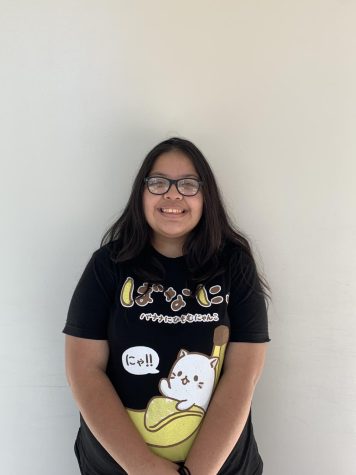
Judith Carrizales is a junior at CVHS. She participated as a member of the Film, Riot, and WISE clubs. Her favorite subjects are Journalism (of course!)...

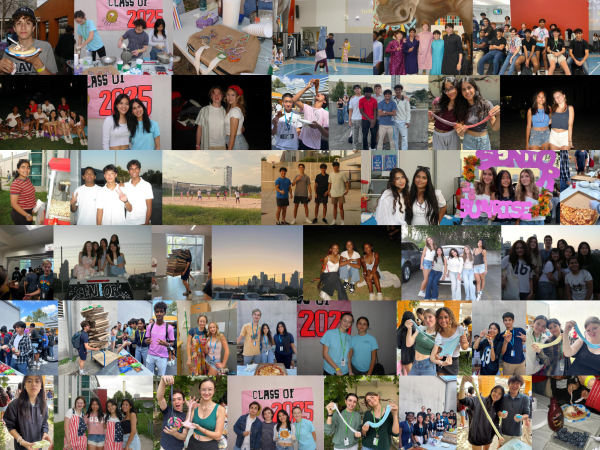
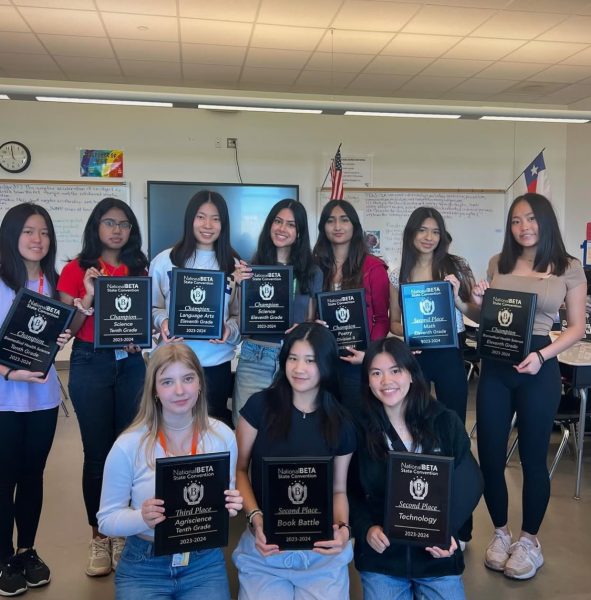
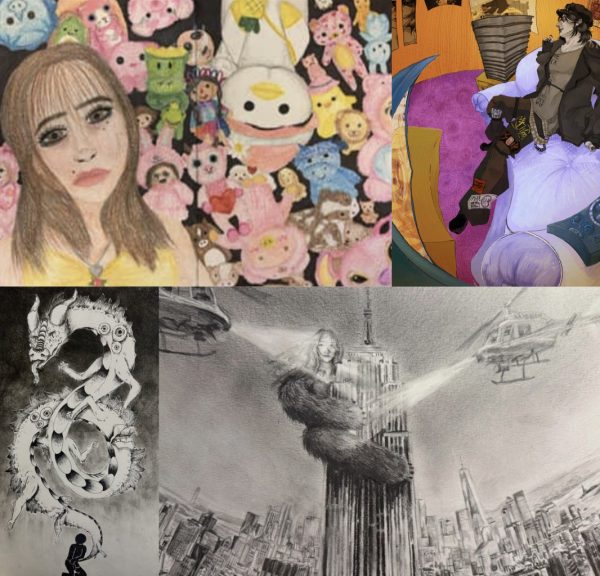
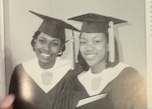
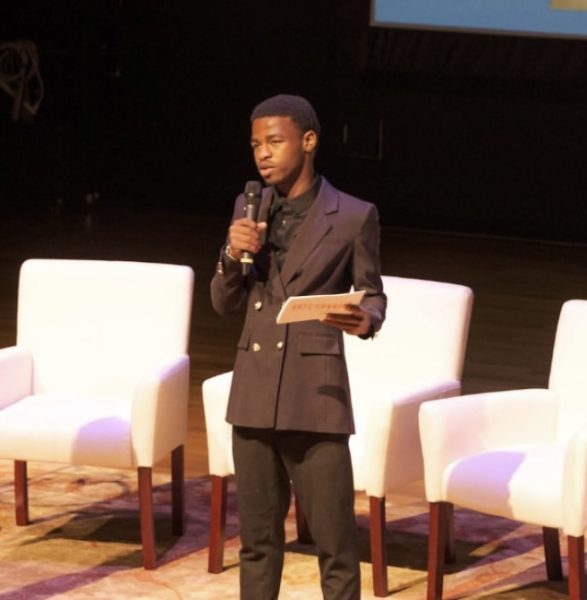
Andres Pargas • Jun 1, 2021 at 5:15 pm
Its a good story. Well said.
Nadia Talanker • Apr 30, 2021 at 5:22 pm
I really appreciated this article because I didn’t know much about her before this!
Emma Pierce • Apr 29, 2021 at 11:31 pm
I appreciate the look into new staff members at Carnegie especially as the pandemic is separating us from face to face interactions, this article does a great job of creating that connection to the new staff
Diego A Gonzalez • Apr 29, 2021 at 11:19 pm
Great writing and I loved to get some new info and background on the new CVHS nurse
Thomas Dowe • Apr 29, 2021 at 11:18 pm
This is a very well-written story and makes me very confident in our nurse.
Thomas Dowe • Apr 29, 2021 at 11:17 pm
Great story and makes me very confident in our nurse.
Talia Moghnieh • Apr 29, 2021 at 11:48 am
This was written very well, great job with the quotes.
Marcos Delgadillo • Apr 29, 2021 at 11:30 am
Amazing work. I am a senior and won’t have the chance to meet her. I am glad I could get to know a little about her.
Andres Pargas • Apr 29, 2021 at 11:30 am
Loved how you organized your story with the quotes
Amy Maya • Apr 29, 2021 at 11:28 am
Great story that introduced the new nurse!
lexy • Apr 29, 2021 at 11:26 am
Glad I got to know more about the nurse
Jonathon Morales • Apr 29, 2021 at 11:20 am
Very interesting, I honestly forgo we had a new nurse for our school, good job on the interesting story.
My-Tran Vo • Apr 29, 2021 at 11:20 am
I like all the quotes you used
Julian Namerow • Apr 29, 2021 at 11:16 am
I loved how personal you were1
Ash Brown • Apr 29, 2021 at 11:14 am
Way to give detailed coverage of our new nurse!
Vivian Huynh • Apr 29, 2021 at 11:13 am
Great work! Glad I got to know a little bit about her through this article.
Nicole Rodil Suarez • Apr 29, 2021 at 11:12 am
Really detailed, you captured her love for what she doe very well
Chiemelie Chinweuba • Apr 29, 2021 at 11:10 am
This is a nice article, I feel that I know her more. One thing though, I think you made a mistake, in the beginning, saying 312-hours shifts a week. I think you meant 12.
Kallisti Clemons • Apr 29, 2021 at 11:10 am
I really like how you included her past, her time as an ICU nurse, and who she is as a person, it really provides insight into who she is.
Abigail Nunez • Apr 29, 2021 at 11:08 am
This really helps me gain trust on our school nurse. Just to know that she has much more experience and does not just takes her job for the money , but to take in importance the health of the students.